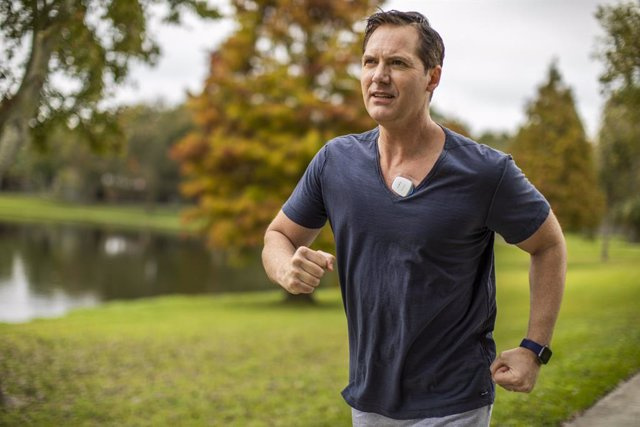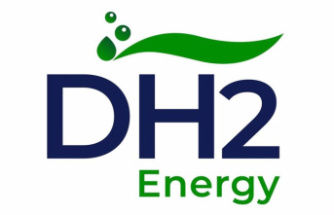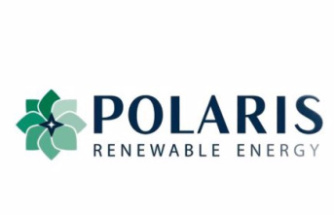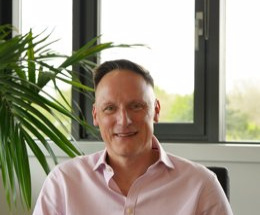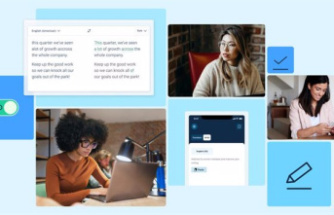An evaluation carried out by the Sant Joan Despí Hospital (Barcelona) supports the use of prolonged Holter monitoring with the Philips ePatch device
Amsterdam, 29 Aug.
At the European Society of Cardiology (ESC) Congress in Amsterdam, researchers at Philips, a world-leading healthcare technology company, have presented the results of a study demonstrating how specific diagnostic lead codes [1] can potentially help to predetermine how long a cardiology patient should receive mobile telemetry, or Holter monitoring, to control their symptoms remotely and avoid new hospitalizations.
Electrocardiography (ECG) with a Holter monitor is used to detect possible cardiac arrhythmias, including atrial fibrillation (AF), in patients experiencing symptoms such as chest pain, shortness of breath, or palpitations. With conventional 24-hour Holter monitoring, data analysis and reporting are often time consuming and inefficient, upfront costs can be high, lead times are often long, and patient satisfaction can be reduced due to the discomfort of the processes. By comparison, extended-wear Holter (EWH) monitors, such as the Philips ePatch, can be worn for several days of continuous monitoring and have become more common in clinical practice in the US, but are still far from the standard. internationally, even in European countries.
At the American College of Cardiology World Congress of Cardiology 2023 in March, Philips researchers compared 1-, 7-, and 14-day retrospective data collected with the Philips ePatch extended-wear Holter monitor. Results showed that extended monitoring with ePatch doubled the number of clinically actionable findings at 7 days and more than 2.5 times the number of findings at 14 days. With such strong initial results, the team decided to continue their in-depth analysis to look at specific diagnostics to better understand the impact of using an expanded monitoring solution.
When ordering Holter monitoring for a patient, clinicians must provide a baseline diagnosis to indicate the reason for the study. The investigators once again compared retrospective ePatch data to determine the impact of bypass diagnosis on overall diagnostic performance of clinically significant arrhythmias using ePatch for 1, 7, and 14 days.
Philips researchers analyzed data from more than 40,000 ePatch-carrying patients and found three levels of referral diagnoses based on results seen with 1-day monitoring.
- Level 1: The five remission codes with the lowest diagnostic yield on day 1 had the greatest increase with extended monitoring, suggesting that these patients benefited most from longer duration of follow-up.
- Level 2: Referral diagnoses with 20-30% detection at day 1 were consistent with previous global diagnostic detection findings, with increases continuing through day 14 of follow-up.
- Tier 3: The four lead diagnoses with the highest detection at Day 1 had significant increases in diagnostic yield at Day 7 that continued to grow through Day 14, but not as dramatically as Tier 1 leads.
These results indicate that the initial referral diagnosis may be useful in guiding the duration of Holter monitoring. The Philips poster presented at ESC 2023 can be found here.
Dr. Pere Blanch, cardiologist at the Hospital de Sant Joan Despí in Barcelona, has also presented an abstract entitled 'Initial clinical experience with the new technology: ePatch prolonged Holter monitoring' at the European Society of Cardiology congress, which assesses the quality and the diagnostic efficacy - including diagnostic speed, accuracy and workflow simplicity - of Philips ePatch in various clinical settings.
"ePatch technology has helped us address many of the challenges associated with traditional Holter monitoring," says Dr. Blanch. "Thanks to this technology, we spend less time on logistics and configuration, and we are seeing greater patient compliance thanks to the ease of application and the comfort of the device," adds the cardiologist at Hospital de Sant Joan Despí. "The data presented by Philips, along with the data we found in our own evaluation of the diagnostic efficacy of ePatch monitoring, help inform care decisions and offer peace of mind to both our patients and staff," concludes Dr. Blanch .
Philips helps extend patient monitoring beyond hospital walls and improve outcomes with an ambulatory cardiac monitoring portfolio that includes a wide range of monitors with flexible usage options to improve patient compliance. Cloud-based AI and advanced algorithms enable high-quality ECG data to be rapidly processed into actionable reports that integrate with EMR to speed decision-making, support streamlined workflow, and enable patient-centric care.
To learn more about Philips' broad portfolio of ECG solutions, visit https://www.gobio.com/heart-monitoring/
[1] The tenth revision of the International Classification of Diseases, or ICD-10, is designed to promote international comparability in the collection, processing, classification, and presentation of mortality statistics.
About Royal Philips
Royal Philips (NYSE: PHG, AEX: PHI) is a leading healthcare technology company focused on improving people's health and well-being, and facilitating better outcomes across the health cycle, from habits health and prevention, to diagnosis, treatment and home care. Philips draws on its advanced technology and in-depth clinical and consumer insights to offer integrated solutions. Headquartered in the Netherlands, the company is a leader in diagnostic imaging, image-guided therapy, patient monitoring and health informatics, as well as consumer health and home care. Philips has recorded sales of €17.8 billion in 2022 and employs approximately 71,500 employees, with business operations and services in more than 100 countries. All Philips news is in our News Center.
Issuer: Philips
Contact: César García Requena, Brand

